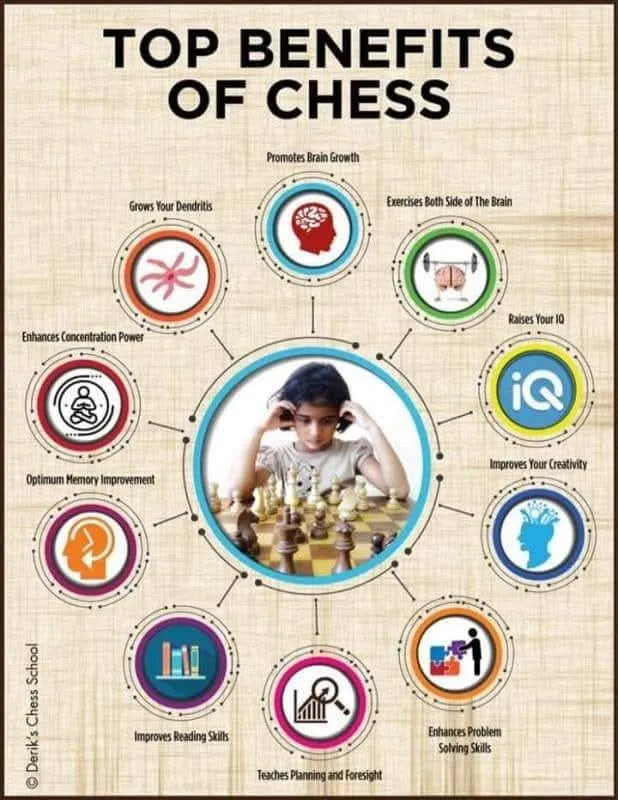Chess, a game of strategy and intellect, has captivated players for centuries. While it's known for its competitive nature, chess offers a multitude of benefits that extend far beyond the board. This exploration will delve into the top benefits of playing chess, drawing upon insights from various sources.
*My chess Life start when I'm at grade 5-6, I've loss so many times,
I've try to quite. But little by little I'll watching game's I'll comment some good moves hehehe.
Cognitive Enhancement: Sharpening the Mind
Chess is renowned for its ability to enhance cognitive function, particularly in areas like memory, problem-solving, and critical thinking.
*Yes it's Through because chess is complete Mathematical,
At my college time I'll use chess is my stepping stones I'll go chess club regularly and doing all my math subject is top in my classroom.
- Memory Boost: Chess requires players to remember complex sequences of moves, opening strategies, and opponent tendencies. This constant mental exercise strengthens memory recall and pattern recognition.
- Problem-Solving Prowess: Each chess game presents a unique set of challenges that demand strategic thinking and problem-solving skills. Players must analyze positions, anticipate opponent moves, and devise solutions to overcome obstacles.
*Regularly I'll attend also some seminar of all networking business.
- Critical Thinking Development: Chess encourages logical reasoning and critical thinking by forcing players to evaluate the consequences of their actions and make informed decisions based on limited information.
- Spatial Reasoning: Chess players develop strong spatial reasoning skills by visualizing potential moves and predicting future positions on the board.
*Sometimes my Real Estate Colleagues convince me to teach Chess at all my business partners, Chess is Life we applied diversified and Colaboration of all businesses.
Beyond Cognition: Expanding Horizons
Chess's benefits extend beyond cognitive enhancement, impacting social, emotional, and even physical well-being.
*My Students 20-200 we need more development, more Study.

- Increased Focus: Chess demands intense concentration and sustained attention. This ability to focus translates to improved performance in other areas of life, such as academic studies, work tasks, and daily activities.
- Emotional Regulation: Chess teaches patience and resilience by encouraging players to learn from their mistakes and persevere through challenges. The ability to handle setbacks and maintain composure under pressure is valuable in all aspects of life.
- Creativity Unleashed: Chess fosters creativity by allowing players to express their unique styles and develop innovative strategies. The game encourages divergent thinking and the exploration of unconventional solutions.
- Social Connection: Chess is a social activity that brings people together from diverse backgrounds and ages. It fosters communication, sportsmanship, and respect among players.
Potential for Health and Well-being
Emerging research suggests that chess may offer protective benefits against cognitive decline and even improve symptoms of ADHD.
- Dementia Prevention: Studies indicate that engaging in mentally stimulating activities like chess may reduce the risk of dementia in older adults.
- ADHD Management: Chess has shown promise in improving focus and attention in children with ADHD, potentially contributing to their overall well-being.

A Game for Life
Chess is more than a game; it's a powerful tool for cognitive development, emotional growth, and overall well-being. From enhancing memory and problem-solving skills to fostering creativity and social connections, chess offers a range of benefits that can enrich lives at all ages. As research continues to explore the multifaceted impacts of chess, its potential for improving mental health and cognitive function becomes increasingly evident.
Thank you for the time you spend hivers hope it's help to the beginners,Once again this is @bobrock1